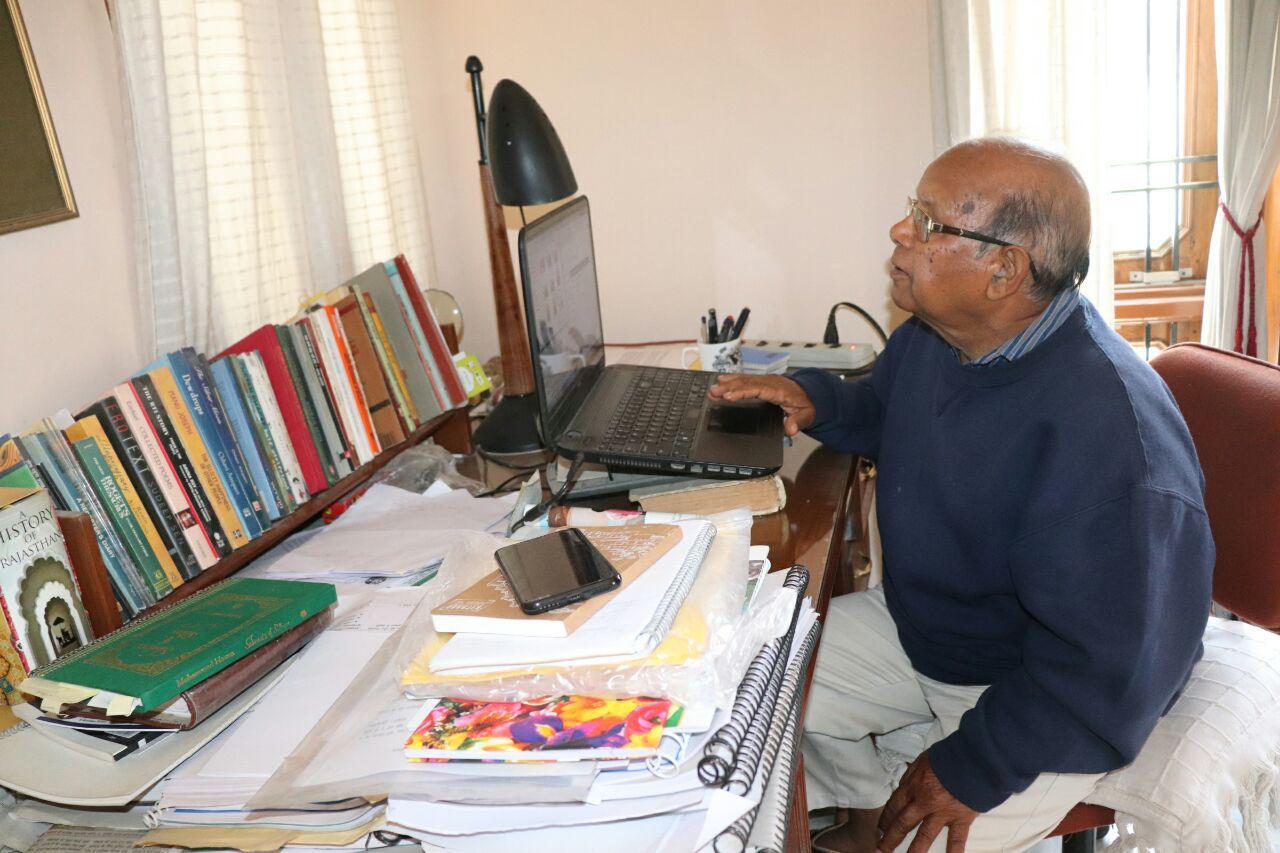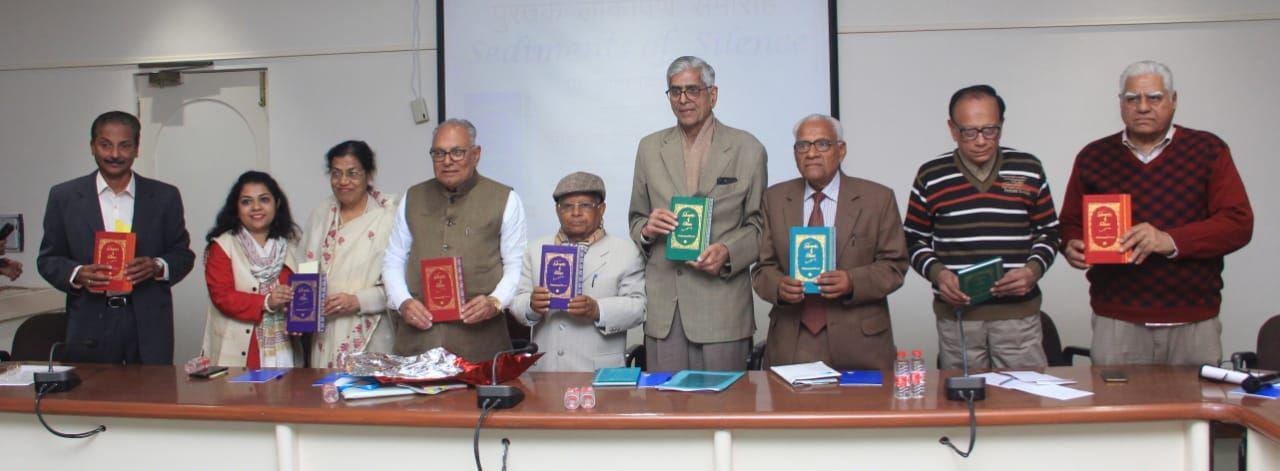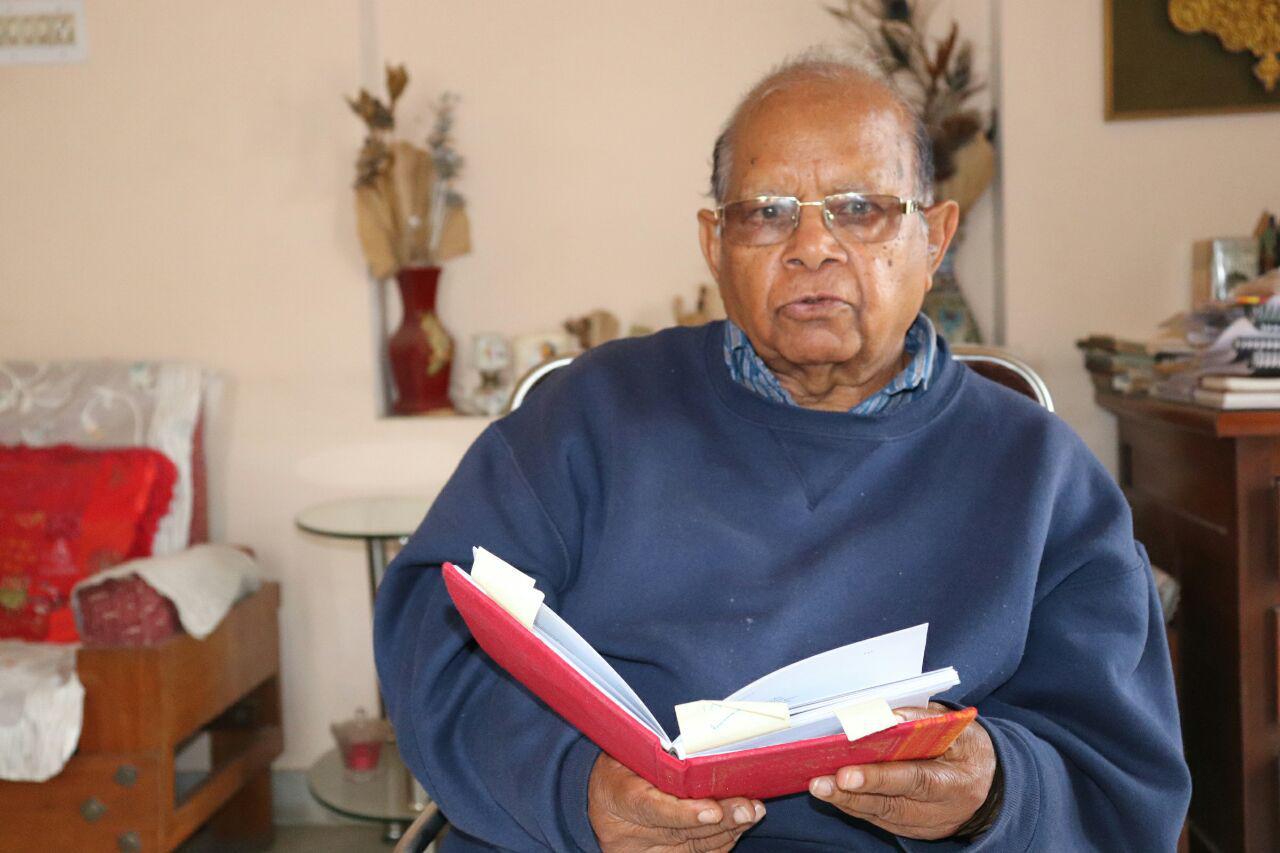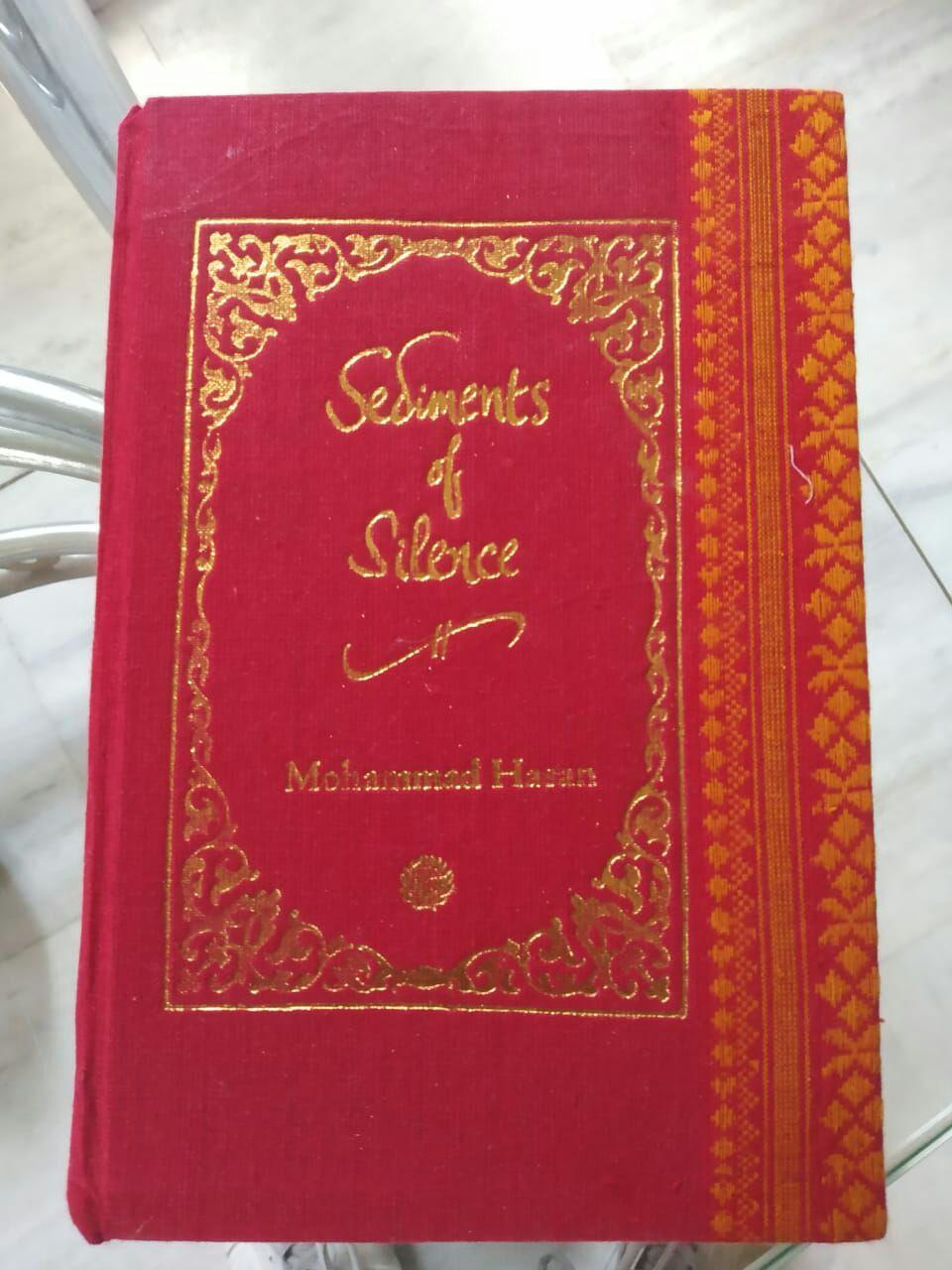Sediments of Silence : a poet's footprint on sand

For 25 years, a 74-year-old retired Professor, human rights activist and environmentalist, Mohammad Hasan, has been crafting his life experiences --of thought- evoking despair and hope-- in poems, but was never certain if he should ever put them together in a book.
Then social media played a major role in instilling confidence in him. He started sharing different poems written by him over a period on his Facebook wall. Encouraging comments and 'likes' from people helped him to transcend the barriers and come up with the book, 'Sediments of Silence'.

But it was not the social media alone. The influence of some close friends played a big role in inspiring him with the idea of the poetry collection. The famed Jaipur Literature Festival(JLF), happening every year in the city in January, also prompted Prof. Hasan with the idea. Both the Professor and his wife Dr. Naseem Quazi have been regular visitors to JLF since its inception.
But then Prof. Hasan is not an accidental poet. Outspoken, brave and public-spirited Professor always had poetry in his mind. True that it took some time to come out in the form of an anthology but the collection—there are 82 poems spread over 162 pages—is quite large number for any poetry book. He assures that there is more left to make another volume. The publisher is the Writer’s Workshop, Kolkata.

The landscape is wide and varied in the collection. Starting from the madrasas and the village schools of the arid western Rajasthan to the haloed corridors of the Syracuse University and to Africa (Nairobi) later, the collection has a vast geographical area and
encompasses a variety of human experiences and emotions—thrill, joy, anger, sorrow, anguish, concern, and nostalgia, to mention a few.
One of the poems titled 'Incubator', reads, "It never happened that all sand dunes were flattened by camels, that all forests were destroyed by herds and fires, that all hills were dug up by reptiles and insects..." This thought-provoking poem was the outcome of his concern over the deterioration of the environment due to pollution
and other human interference. As such the poems in the collection were written
over a period of three decades and some of them go back to the era when Hasan was doing research on the environment.

"I wrote my first poem in the year 1989. It was about an eagle that encircles the ruins of human-made architecture and feels sorry about the amount of destruction that has taken place. I kept on writing on the environment and other aspects of life that disturbed me. But, it was only in the year 2000 that I started taking a keen interest in poetry. When asked if his poetry is a figment of imagination or his real-life experience, Prof. Hasan said that it is an amalgamation of real-life experiences and his responses to degradation of the environment, calamities, violence, and the wars. The fragments of imagination in the poems pertained to human relationships, love and orthodoxy.

Prof. Hasan draws his major inspiration from his geographical mobility
and meeting people from diverse cultures. He spent many years teaching in the Universities of Nairobi, Kenya and did doctoral and advance research on South Asians in the USA. This exposure to diverse social diaspora is reflected in one of his poems titled 'Tsunami Waves' that reads, 'I have witnessed Diaspora of Asian men, their looted shops on Kenyatta Road, vandalised sprawling homes in Westland,
trapped, fear-frozen campus girls.' Going down the memory lane, Hasan reflected that these lines that talks of campus girls are from his personal experience in Nairobi. There was a time when six Kenyan girls had fled from the grip of army men in fear of sexual assault and were given shelter by him at his place. In his own words, Prof. Hasan is a rebel and an outspoken person who cannot stand injustice. In Nairobi
for the first time in his life, he experienced fear. “I believe in freedom and the word'fear' was not in my dictionary. But, I would accept, that day I was scared because the army was looking for the girls and they were hiding at my place. However, we were saved because back then army respected university professors.

Obviously, Prof. Hasan is not afraid of expression. He is known for his outspokenness and the poems manifest the intense desire to express his multifarious emotions and strong feelings in a better and long-term manner. What is his poetry about? It is about life, a life of his own and of others. In the brief introduction itself, he confesses, “It wasn’t an easy universe, It was a bleak desert for childhood to grapple with”.
Here is a person who is an achiever, looking back with nostalgia and a kind of satisfaction that journeys he had made. In his poems, there is an element of wonderment also as to how he could manage himself against the odds of ordinariness, adverse conditions, harsh weather and an indifferent—if not hostile—social environment.
“There wasn’t any firm hand to help Draw straight line on sand, slate or paper…”
A Rajasthani, that too a desert man, need to mention, sand dunes and water scarcity in his expressions. But while describing a geographical entity, Prof. Hasan can bring some mysticism of the wandering spirits settled in the abandoned village wells, which many of us as children, always believed.
“Our wells were deep, their waters barely sweet. Their depths echoed grief of wandering spirits”.
Senior journalist and writer Shri Om Thanvi, in his introduction to the collection, observes, “the volume has diverse ecological themes, the geographies of emotions and landscapes of conflicts. These poems do not fall into one monotonous category…"
Also Read: Kripa Nayal Unbridled: Anything for the Horses!
First published: 26 February 2019, 17:10 IST






![BJP's Kapil Mishra recreates Shankar Mahadevan’s ‘Breathless’ song to highlight Delhi pollution [WATCH] BJP's Kapil Mishra recreates Shankar Mahadevan’s ‘Breathless’ song to highlight Delhi pollution [WATCH]](https://images.catchnews.com/upload/2022/11/03/kapil-mishra_240884_300x172.png)

![Anupam Kher shares pictures of his toned body on 67th birthday [MUST SEE] Anupam Kher shares pictures of his toned body on 67th birthday [MUST SEE]](https://images.catchnews.com/upload/2022/03/07/Anupam_kher_231145_300x172.jpg)






